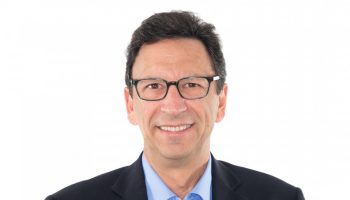This week’s column was inspired by a few recent conversations with Chautauquans who have asked for advice on what they can do better to create a more welcoming and inclusive community — particularly for diverse populations who are new to Chautauqua. In a similar vein, The Inclusion, Diversity, Equity and Accessibility (IDEA) Strategic Plan (available at www.chq.org/idea) asks us to move from conversations of unconscious bias to a more proactive stance of conscious inclusion. This question reflects the commitments of many Chautauquans to translate their values (like a desire to be welcoming and inclusive) into concrete action steps.
In my role, I get to hear a range of experiences, from those who feel a sense of true inclusion and belonging, to times when we collectively miss the mark. As such, I see myself as both the “keeper of the stories” and the “storyteller” as I reflect back on the common themes I frequently hear. There are many stories of diverse Chautauquans who have experienced what Martin Luther King Jr. called the Beloved Community. From time to time, however, the most common sources of exclusion generally center around two themes: highlighting differences and making assumptions.
I believe (and know!) that many Chautauquans are actively trying to welcome diverse communities and individuals to the grounds. However, I have heard from some diverse guests that when a conversation starts with highlighting a difference, it may make them feel like an outsider. Examples include someone starting a conversation with a Black individual with “Your skin is so beautiful, I bet you never get sunburn!” Others might involve touching someone’s hair without their consent, because it “looked so unique.” For others, it might be a comment about their accent or their ethnic clothing. Those who have shared these stories with me have the same refrain: “Why not seek the commonality first, rather than starting with the difference?” As one person put it, “We are all here at Chautauqua because we love the four pillars. Ask me how my day is going, or what I thought of the lecture this morning. Seek our shared experience first, not the difference.” My advice is to do exactly that — start with the commonality, and if you are able to build rapport (with special attention to social cues), the conversation might naturally evolve to more intimate topics.
The second theme of exclusion has to do with assumptions. Some Chautauquans of color attending the Dance Theatre of Harlem reported being asked if they were family members of the performers. Later that evening, a different group asked them if they were art students. A person who uses a manual wheelchair reported that a stranger came up to them and said, “You’re not going to be able to make it up the hill. I’ll give you a push.” Sometimes, diverse Chautauquans are misidentified and assumed to be someone else (for example, staff of color being mistaken as Chautauqua Theater Company actors, or property owners cleaning their own porch being asked their hourly cleaning rate.) In some instances, these might be genuine attempts to start a conversation. Despite the intent, the impact is off-putting for many. My second piece of advice would be to not make assumptions. Instead, ask broad questions. Open-ended questions often lead to better conversations.
I know that for some Chautauquans, these might be hard things to hear. In addition to the two basic recommendations above, I invite us all to think about how we might respond if we witness such actions happening in front of us. How can we, as a community, approach our peers and invite them to consider alternative approaches? Chautauqua is about lifelong learning, and I hope that we can approach these conversations with open hearts and minds. If you’d like to be in further discussion on this topic, I invite you to attend the Hebrew Congregation’s Shirley Lazarus Speaker Series at 7 p.m. Sunday, July 17, 2022, in Smith Wilkes Hall, where I’ll be probing these ideas. All are welcome.
Amit Taneja
Senior Vice President & Chief IDEA Officer





